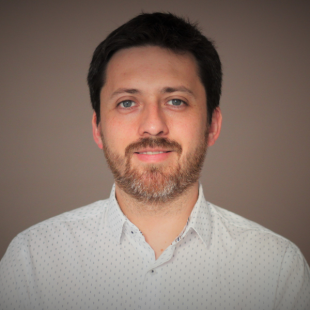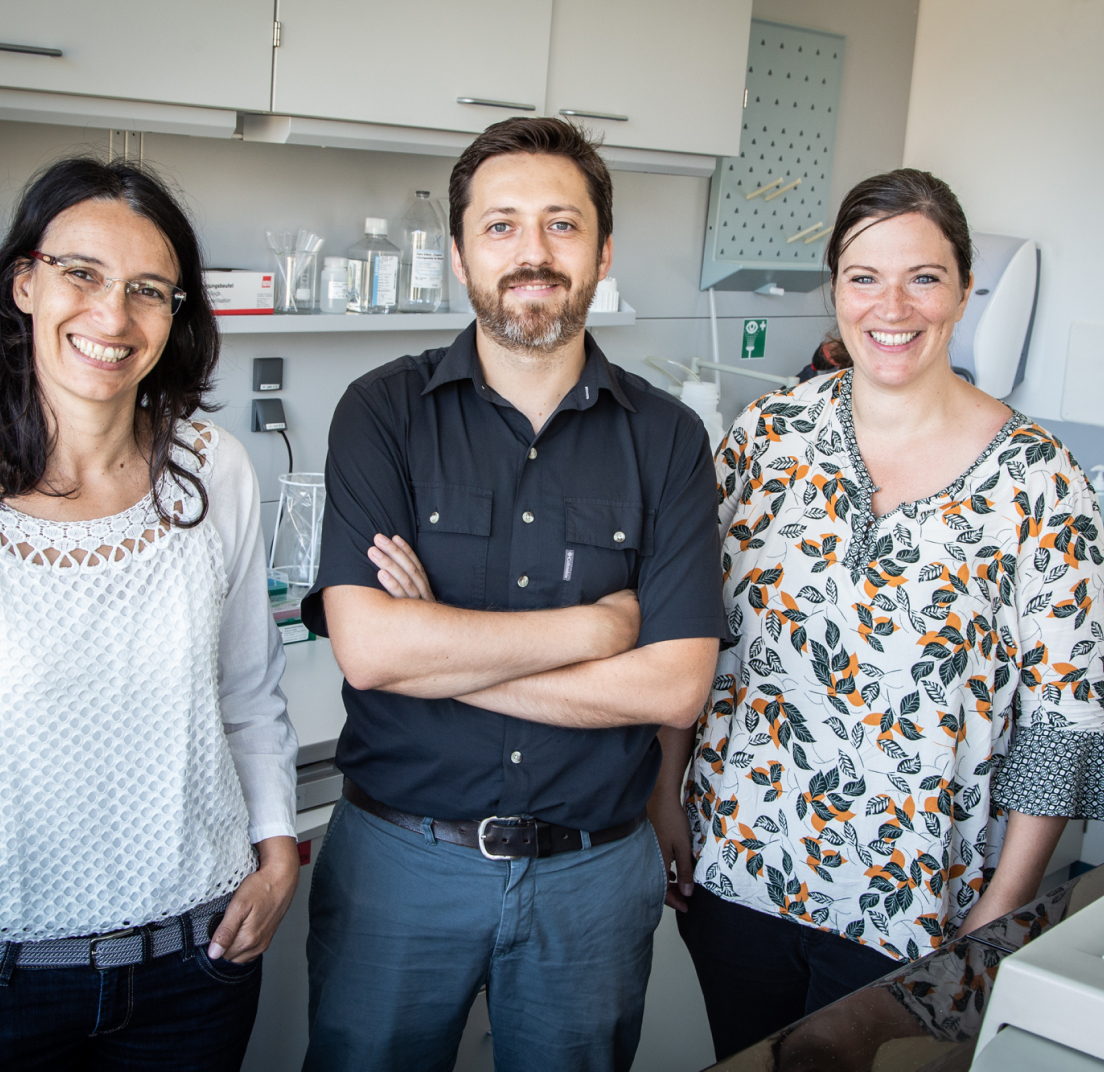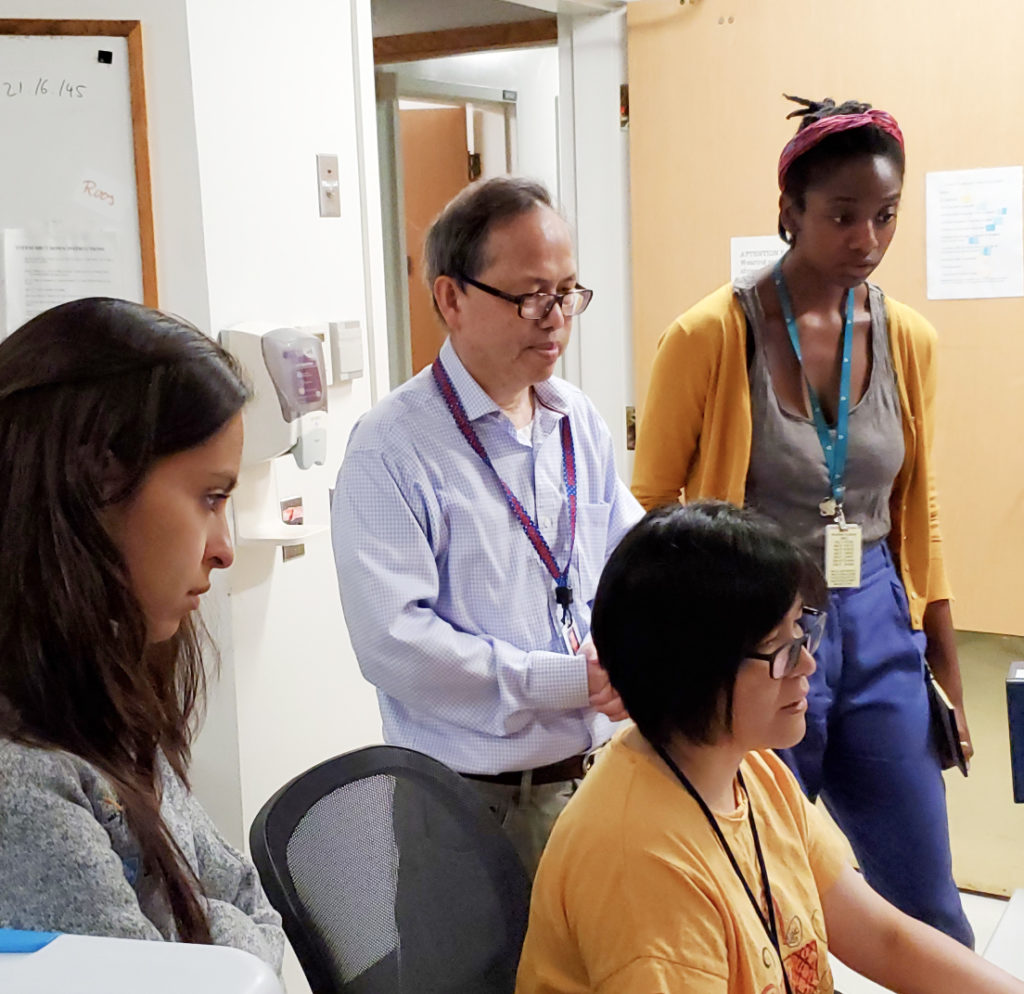“Unraveling Endothelial Function in ME/CFS”
Principal Investigator: Francisco Westermeier (PhD)
FH JOANNEUM University of Applied Sciences, Austria
“Unraveling Endothelial Function in ME/CFS”
Principal Investigator: Francisco Westermeier (PhD)
FH JOANNEUM University of Applied Sciences, Austria

Collaborators: Nandu Gowami (MD, PHD), Nuno Sepulveda (PhD), Monika Riederer (PhD), Bernhard Wagner (PhD), Jennifer Blauensteiner (PhD)
Dr. Francisco Westermeier, PhD, from the FH JOANNEUM University of Applied Sciences in Austria, has experience in diabetes research and in the study of the renal and cardiovascular systems. Dr. Westermeier and a collaborative group of researchers that includes Dr. Nuno Sepulveda from London School of Hygiene and Tropical Medicine want to know if inflammation is impacting cardiovascular function in people with ME/CFS. They will measure the health and function of the endothelium – cells lining the entire cardiovascular system that are responsible for controlling normal blood flow and adequate oxygen supply to all tissues in the body. These clinical measures will be correlated with inflammatory markers in the blood that are linked to endothelial dysfunction.
– Francisco Westermeier
Read the research study abstract below:
Myalgic encephalomyelitis/chronic fatigue syndrome (ME/CFS) is a multi-organ disease that affects at least 17-24 million people worldwide. ME/CFS is mainly characterized by recurrent or persistent exhaustion not improved by rest, cognitive impairment, and chronic pain which can worsen after performing even minor mental or physical effort. Although the exact cause of this syndrome is still unknown, there is accumulating evidence that some patients with ME/CFS show disturbances of the immune system, where chronic inflammation seems to be linked to their symptoms. In several known pathologies, inflammation is known to affect the cardiovascular system via the endothelial function, which is responsible for controlling the normal blood flow and adequate oxygen supply to all tissues in the body. The endothelial function is primarily dependent on the production of nitric oxide (NO) by the endothelial cells which form a thin membrane that line the entire cardiovascular system, from the heart to the smallest blood vessels. Despite its well-established physiological relevance, no thorough study has so far evaluated endothelial function in patients with ME/CFS. In addition, given the pivotal function exerted by the endothelial cells and their ubiquity presence in the body, one can posit the question: could the multi-organ abnormalities found in ME/CFS patients be also a consequence of defective endothelial function? To answer this question, the proposed study aims to evaluate the mechanisms that control the endothelial-dependent NO production using experimental strategies and innovative approaches. This study has the potential of understanding the endothelial function in ME/CFS and how it can be improved in the clinic. It also hopes to understand whether features of endothelial dysfunction can be used as a putative biomarkers for disease diagnostic and prognosis.



350 N Glendale Ave.
Suite B #368
Glendale, CA 91206
SolveCFS@SolveCFS.org
704-364-0016
| Cookie | Duration | Description |
|---|---|---|
| cookielawinfo-checkbox-analytics | 11 months | This cookie is set by GDPR Cookie Consent plugin. The cookie is used to store the user consent for the cookies in the category "Analytics". |
| cookielawinfo-checkbox-functional | 11 months | The cookie is set by GDPR cookie consent to record the user consent for the cookies in the category "Functional". |
| cookielawinfo-checkbox-necessary | 11 months | This cookie is set by GDPR Cookie Consent plugin. The cookies is used to store the user consent for the cookies in the category "Necessary". |
| cookielawinfo-checkbox-others | 11 months | This cookie is set by GDPR Cookie Consent plugin. The cookie is used to store the user consent for the cookies in the category "Other. |
| cookielawinfo-checkbox-performance | 11 months | This cookie is set by GDPR Cookie Consent plugin. The cookie is used to store the user consent for the cookies in the category "Performance". |
| viewed_cookie_policy | 11 months | The cookie is set by the GDPR Cookie Consent plugin and is used to store whether or not user has consented to the use of cookies. It does not store any personal data. |
Please let us know more about you.
Please let us know more about you.
Please let us know more about you.